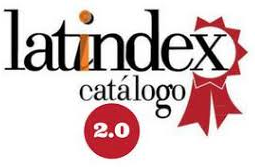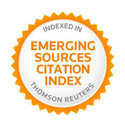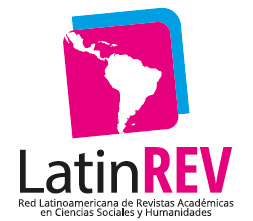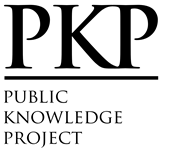How context influences the practice of communication
The challenge of integration in our information society
Abstract
This article explores the importance of communication and information systems in the articulation of global relations with territorial practices. We adopt an essayistic format, which allows us to probe the tensions and collaborative dynamics that emerge from the coexistence between local institutions and connected society.
The conditions under which the public conversation unfolds are modified in a context where the production and spread of information occupy center stage. There are new mechanisms in place that force us to rethink how political institutions and media organizations manage their channels for expression and discussion.
In what follows, we seek to answer two different questions. First, can political systems substitute a representational dynamic for another one centered on negotiation, doing so without altering their function and importance? And second, can territories embed their practices within the record of connected society?
There is an important distinction to be made between spaces that can survive and coexist within our information society and those that, instead, are excluded from it. This distinction allows us to reflect on the conditions of adaptation. The question is to what degree does the possibility of emergence, for local identities, depend on their capacity to express themselves and network in the context of a communicational practice that can associate global influence with the continued relevance of culture.
The potential to transform the periphery into context, integrating the local through collaborative dynamics, emerges as a field that combines, in its analysis, both culture and communication.
Downloads
References
Augé, M. (2008). Los no lugares: espacios del anonimato. Barcelona: Gedisa
Baudrillard, J. (2007). Cultura y simulacro. Barcelona: Kairós.
Carman, M. (2011). Las trampas de la naturaleza. Buenos Aires: Fondo de Cultura Económica.
Castells, M. (2009). Comunicación y poder. Madrid: Alianza Editorial.
Contissa, N. (2000). La dictadura del sí mismo (no publicado).
Dufour, D. (2007). El arte de reducir cabezas. Buenos Aires: Paidós.
Eagleton, T. (2001). La idea de cultura. Barcelona: Paidós.
Friedman, J. (2001). Identidad cultural y proceso global. Buenos Aires: Amorrortu.
Geertz, C. (2005). La interpretación de las culturas. Barcelona: Gedisa.
Gorelik, A. (2015). Terra incógnita: para una comprensión del Gran Buenos Aires como Gran Buenos Aires. En Kessler, G. (dir.). Historia de la provincia de Buenos Aires: el Gran Buenos Aires (pp. 21-69). Buenos Aires: Universidad Pedagógica Nacional.
Grossi, G. (2007). La opinión pública: teoría del campo demoscópico. Madrid: CIS.
Harvey, D. (2004). La condición de la posmodernidad. Buenos Aires: Amorrortu.
Lefevbre, H. (2013). La producción del espacio. Madrid: Capitán Swing.
Luhmann, N. (2005). El arte de la sociedad. México: Herder.
Lyotard, J. (1997). La condición postmoderna. Madrid: Cátedra.
Mouffe, C. (2007). En torno a lo político. Buenos Aires: Fondo de Cultura Económica.
Ramonet, I. (2003). La tiranía de la comunicación. Madrid: Debate.
Sassen, S. (2012). Una sociología de la globalización. Buenos Aires: Katz.
Sassen, S. (2015). Expulsiones: Brutalidad y complejidad en la economía global. Buenos Aires: Katz.
Sennett, R. (1997). Carne y piedra. Madrid: Alianza Editorial.
Sennett, R. (2019). Construir y habitar. Barcelona: Anagrama.
Shumway, N. (2002). La invención de la Argentina. Buenos Aires: Emecé.
Sibilia, P. (2013). El hombre postorgánico. Buenos Aires: Fondo de Cultura Económica.
Sloterdijk, P. (2006). Esferas III. Madrid: Siruela.
Sodré, M. (1998). Reinventando la cultura. Barcelona: Gedisa.
Sztompka, P. (2012). Sociología del cambio global. Madrid: Alianza Editorial.
Van Dijck, J. (2016). La cultura de la conectividad. Buenos Aires: Siglo XXI.
Zarazaga, R. (2017). Conurbano infinito. Buenos Aires: Siglo XXI.
The authors retain the copyright and guarantee the journal the right to be the first publication of the work. In case that a translation of the article already published in Austral Comunicación can be published in another journal, it is requested to record the original publication in the translated version.
The license used is CC BY-NC-SA, which allows sharing (copying and redistributing the material in any medium and format) and adapting (remixing, transforming and building on the material) under the following terms: attribution (acknowledge authorship) and non-commercial (the material cannot be used for commercial purposes). Update: February 1, 2022.
Austral Comunicación allows the author (s) to retain the publication rights without restrictions.











































